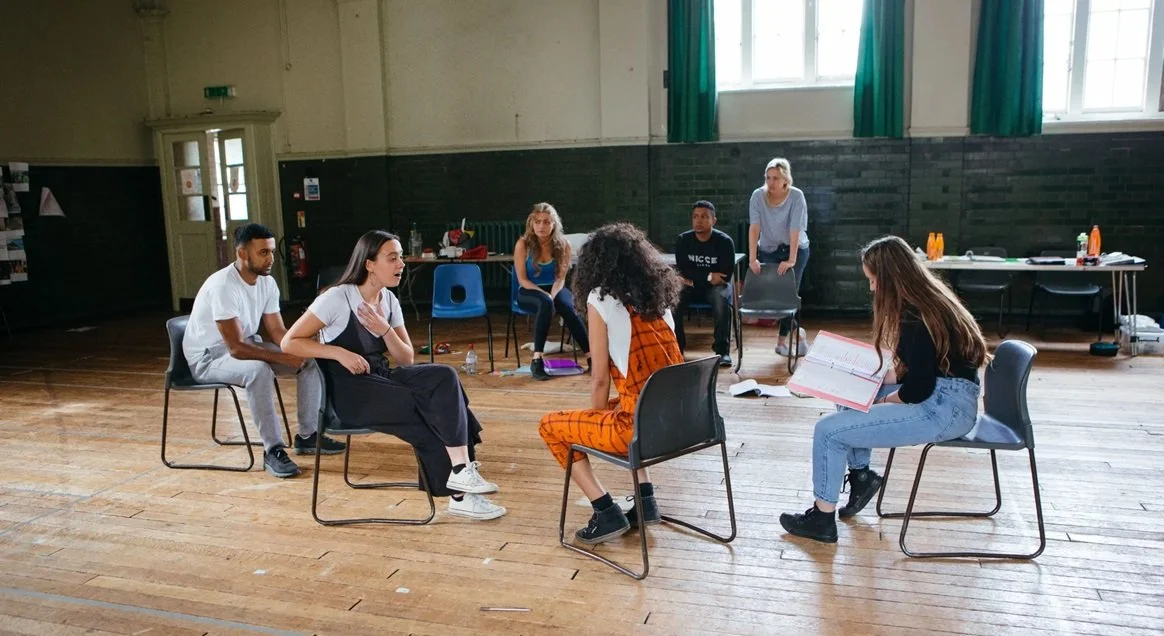We Keep Saying Theatre is “More Important Than Ever,” But To Whom?
by Chris Peterson
In the wake of a closing notice, a glowing revival, or a particularly resonant curtain call, the phrase appears like clockwork:
“Theatre is more important now than ever.”
It has the cadence of a prayer and the certainty of a marketing slogan. We repeat it not necessarily because it’s true, but because it feels good to say. You’ll find the phrase on Playbill covers, gala invitations, fundraising emails, and actor Instagram captions. It’s comforting, familiar, and conveniently vague. Hell, I’m guilty of saying it plenty of times.
But here’s the uncomfortable question: to whom is theatre more important than ever?
Certainly to those of us who build it, teach it, sell it, or cling to it. Theatre is where we find belonging, purpose, and sometimes a paycheck. It shapes the rhythm of our lives. For artists, administrators, students, and longtime subscribers, it feels vital. How could it not?
But beyond our circle, does that statement hold the same weight?
Theatre remains largely inaccessible to many. Not because the work lacks depth or power, but because the path to it is often closed off. Ticket prices have soared. Major productions are concentrated in a few cities. Many schools have eliminated their performing arts programs. And even when the content connects, the culture surrounding it (the customs, expectations, and economic barriers) can feel alienating.
We love to say that theatre fosters empathy and has the power to unite and heal. I believe that. But too often, we’re saying this to people who already agree. Our declarations echo comfortably within a room full of nodding heads. Meanwhile, outside that room, entire communities have never been asked what they need from theatre or whether they want anything from it at all.
We cannot assume relevance. We have to earn it.
If theatre is to claim a meaningful role in civic and cultural life, it must do more than celebrate its own existence. It must reach outward. Not to tour, or to teach, or to perform from a distance, but to listen. What stories aren’t being told? What stories aren’t being heard? Who has never seen themselves on stage? Who has never been invited to try?
We often talk about access, but that usually means discount codes, digital lotteries, or relaxed performances that still assume someone already knows where to look. What if access meant reimagining the model entirely? What if the most meaningful theatre happened not in buildings named after donors, but in gyms, school cafeterias, or community centers? What if we stopped waiting for audiences to find us, and started showing up in the places where they already are?
Theatre is not inherently more noble than any other art form. It is fleeting, messy, expensive, and often imperfect. But it can be something transformational, if we are willing to ask harder questions about who it's really for.
That means funding new work that isn’t built for commercial transfer. It means programming seasons that do more than check boxes. It means actually placing power in the hands of those who haven’t traditionally held it. It means letting go of the assumption that Broadway is the destination, and remembering that the purpose of theatre was never to be seen by the most people. It was to be seen fully by someone.
Theatre might very well be more important than ever. But we won’t prove that by repeating the phrase louder or printing it on more tote bags. We’ll prove it by looking at who’s in the room and finally, who feels like they truly belong there.
